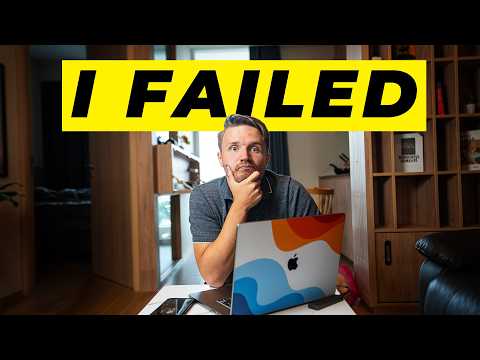

Startup app development often feels like putting together a new puzzle. Ideas need careful planning and right tools to succeed, and teams sometimes stumble over unclear goals, tight schedules or impractical estimates. This guide helps you uncover simple steps to navigate the process, offering a friendly walkthrough for both beginners and those with a bit more experience.
These points can help steer your project towards success and ensure you’re making informed decisions. Always remember, clarity and communication can solve many issues in development. If you are thinking about taking your app idea to the next level, consider reaching out to us!

Startups frequently face challenges in app development, with many pitfalls arising from mismanaged communication and overly optimistic project estimates. Miscommunication can result in buggy prototypes and delayed schedules. For example, if stakeholders or developers are not on the same page, changes requested midway can break earlier implementations. Likewise, expecting a minimal effort to yield maximum output is a recurring problem. Often, optimistic estimates lead startups to underestimate the time and resources needed, forcing teams to rush and overlook important details.
Effective communication is critical in any project. Startups tend to jump into development without establishing clear channels for feedback and updates. When teams do not align their visions or share progress regularly, misunderstandings occur. This can be especially problematic when working with remote or distributed teams, a common scenario in today’s tech environment. Regular meetings, written updates, and demo sessions are useful practices to keep all parties on the same page.
Many startups fall into the trap of assuming that every step in the development process will proceed without setbacks. This optimistic view often neglects potential technical debt and the time needed for testing and iteration. As a result, projects may suffer from rushed features or critical bugs that delay the overall launch. Planning pitfalls, such as neglecting a detailed timeline or failing to account for unforeseen technical challenges, can derail a project before it truly begins.
Engaging in trial projects before committing to larger, long-term contracts is essential. Startups benefit from low-risk engagements where developers and founders can assess compatibility and work efficiency. Such trial projects allow both parties to experiment with ideas, validate business assumptions, and refine their project management processes. These preliminary engagements act as a test run and help identify any potential misalignments early in the process.
London-based developers bring a broad set of skills that cater to the diverse needs of startup app development. Ranging from mobile and web apps to blockchain, AI, UX/UI design, and MVP planning, these specialists offer flexible and agile solutions tailored to each startup’s unique requirements. A key factor that distinguishes them is their attention to cultural fit and agile processes, ensuring a harmonious and responsive development environment.
From simple mobile applications to complex web platforms, London developers create solutions that engage users and promote business functions. They work on custom software to meet unique operational challenges while maintaining an emphasis on user experience. Whether a startup seeks a cross-platform solution or a highly tailored mobile app built on popular no-code tools, these service providers ensure that each product is scalable and future-ready.
Modern startups increasingly look to leverage emerging technologies such as blockchain and artificial intelligence to enhance their offerings. London-based experts often have experience integrating blockchain protocols for secure data management or using AI for enhanced user interactions. This combination often results in a more robust, secure, and intelligent product that differentiates a startup in a competitive market.
Since appearance and user flow can make or break an app’s success, UX/UI design remains a priority. Many developers use tools like Figma to create user-friendly interfaces that streamline the design process and improve collaboration. MVP planning is equally essential, focusing on the core features needed for market testing without investing in full-scale systems. By practising iterative design and agile sprints, teams rapidly prototype, test, learn, and refine their products. This stage is critical when founders face the harsh realities of market demands and user feedback.
A systematic approach to mobile app development is crucial to keep projects on track and avoid common pitfalls. Below is a step-by-step checklist designed to help startups navigate the journey from ideation to deployment.
- Listing primary goals and user pain points
- Outlining feature requirements
- Prioritising features into must-have and nice-to-have categories
- Discussing market potential and competitor analysis
This phase often involves sketching initial concepts using whiteboards or simple design tools, setting the stage for more detailed planning.
- Creating rough layouts of critical screens
- Iteratively refining the design based on team feedback
- Testing the usability of the user interface
- Collaborating with a UX designer to ensure the app addresses user needs
Making or iterating on prototypes early saves time and expense later in development.
- Using no-code tools for a quick, initial build. For more advanced requirements, custom software development might be necessary.
- Employing agile methodologies to break work into sprints, ensuring flexibility for iterative feedback
- Setting up version control and continuous integration practices to maintain code quality
- Testing each component thoroughly and integrating automated tests early in the process
Balancing speed and quality during development can be tricky, yet using agile sprints can help maintain a steady workflow.
- Intellectual property rights for software, design and branding
- Data protection and privacy regulations such as GDPR in the UK
- Licensing requirements for third-party software or tools used in development
- Contractual details with developers or technology partners
Engaging legal counsel early helps address potential disputes before they escalate. Clear legal frameworks ensure that the startup and its partners share a mutual understanding of roles, responsibilities and rights.
- Setting up infrastructure on cloud services or servers
- Final app store submissions and compliance checks for mobile and web platforms
- A staged launch with a select group of beta users to gather early feedback
- Monitoring performance through analytics and customer support channels
Utilising agile sprints during deployment ensures that new features and fixes are rolled out quickly based on real-time user interactions and feedback.
Success in startup app development is often evidenced by real-life examples that validate the step-by-step processes mentioned above. Many startups have turned challenges into opportunities by using the right mix of technology and agile processes.
Numerous startups have found Figma to be indispensable when it comes to prototyping and user interface design. The tool’s collaborative features allow multiple team members to work together in real time, speeding up the design process and eliminating bottlenecks. This approach not only improves the accuracy of the final product design but also ensures a seamless handover to the development team.
Adopting agile sprints for MVP development has led several startups to achieve faster time-to-market. Iterative cycles mean that what might initially appear as a minimal product actually evolves quickly based on real user data and feedback. One notable benefit is that agile processes allow for continuous improvements and rapid pivots, which are crucial in the constantly changing startup landscape.
For instance, small teams have successfully leveraged trial engagements to tweak and perfect their MVPs before committing fully to scaling up their products. This iterative method helps in mitigating risks and learning early which features resonate best with users.
A practical comparative approach for development methodologies can be seen in the table below:
AspectNo-Code ApproachCustom Software DevelopmentDevelopment SpeedFaster prototype creationSlower initial build, but highly customisableFlexibilityLimited by platform capabilitiesFully adaptable to unique requirementsCostLower initial costsHigher initial investmentIterationEasy to iterate, especially for MVPsRequires re-writing segments, more effortUse CaseIdeal for R&D projects and MVPsBest for tailored, long-term solutions
This table can help startups decide which path best suits their development needs.
The following resources offer additional insights and detailed guidance on various aspects of startup app development:
Other industry players such as Garage2Global and Appdrawn have also produced strong case studies and articles that can help broaden your understanding of effective startup app development.
Soft call-to-action: If you’re interested in a hands-on approach with award-winning Bubble.io development in London, consider exploring our services at CreatorConcepts. Our expertise in R&D projects, MVPs, and SaaS solutions may be just what your startup needs to make a breakthrough.
We have covered the basics of startup app development, from common challenges to clear planning steps. Key lessons include real planning, use of simple tools and detailed checklists. This summary shows how effective ideas can turn into real apps with a bit of effort and clear direction. If you need help advancing your project, consider the expertise of CreatorConcepts to guide you from start to finish.
Startup app development is the process of creating applications specifically designed for new businesses. It covers everything from planning, design, to implementation, with a strong focus on solving unique industry problems. This method usually involves iterations and user feedback to ensure the app meets market needs.
The development time depends on the scope and complexity of your project. It might take a few months for a Minimum Viable Product (MVP) and longer for a more complex solution. Often, using no-code approaches or frameworks can speed up the process without compromising quality.
User experience is essential - a well-designed app helps in engaging and retaining users. A clear design and intuitive navigation can make users feel appreciated and understood, thus leading to better adoption and customer satisfaction. It’s not just about aesthetics; it’s about ensuring your app is easy to use and fits your audience’s needs.
Yes, several no-code platforms support startup app development. Tools like Bubble.io provide a versatile platform to build complex web apps without heavy coding. These platforms help reduce development time and costs, while still delivering robust functionality essential for startups.
Our award-winning expertise in Bubble development in London ensures that startups get top-notch service when building their apps. We specialise in R&D projects, MVPs, apps and SaaS solutions. Working with us means getting creative and technical guidance every step of the way, tailored to your unique business needs. If you’re looking to develop an app that makes an impact, we are here to help.